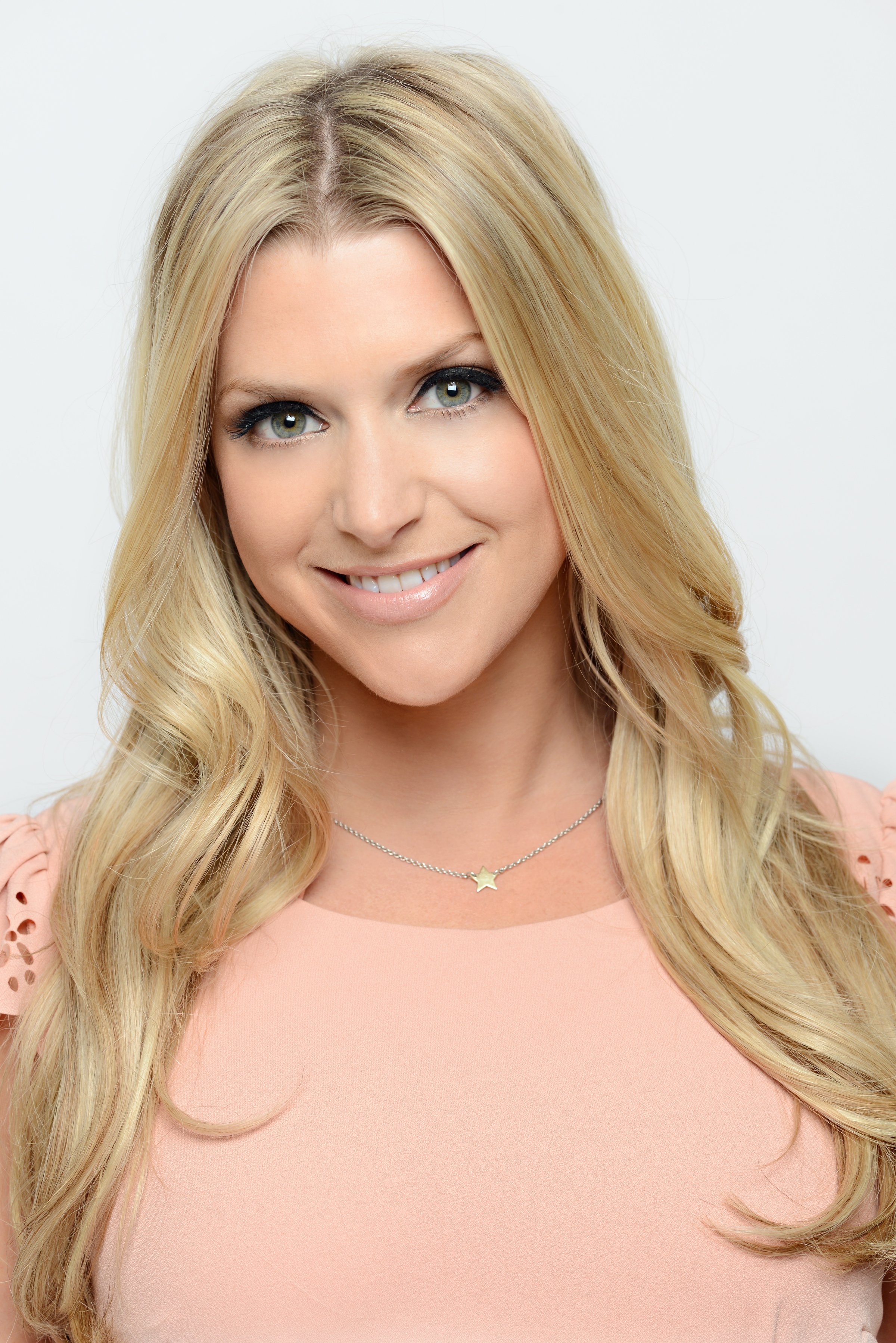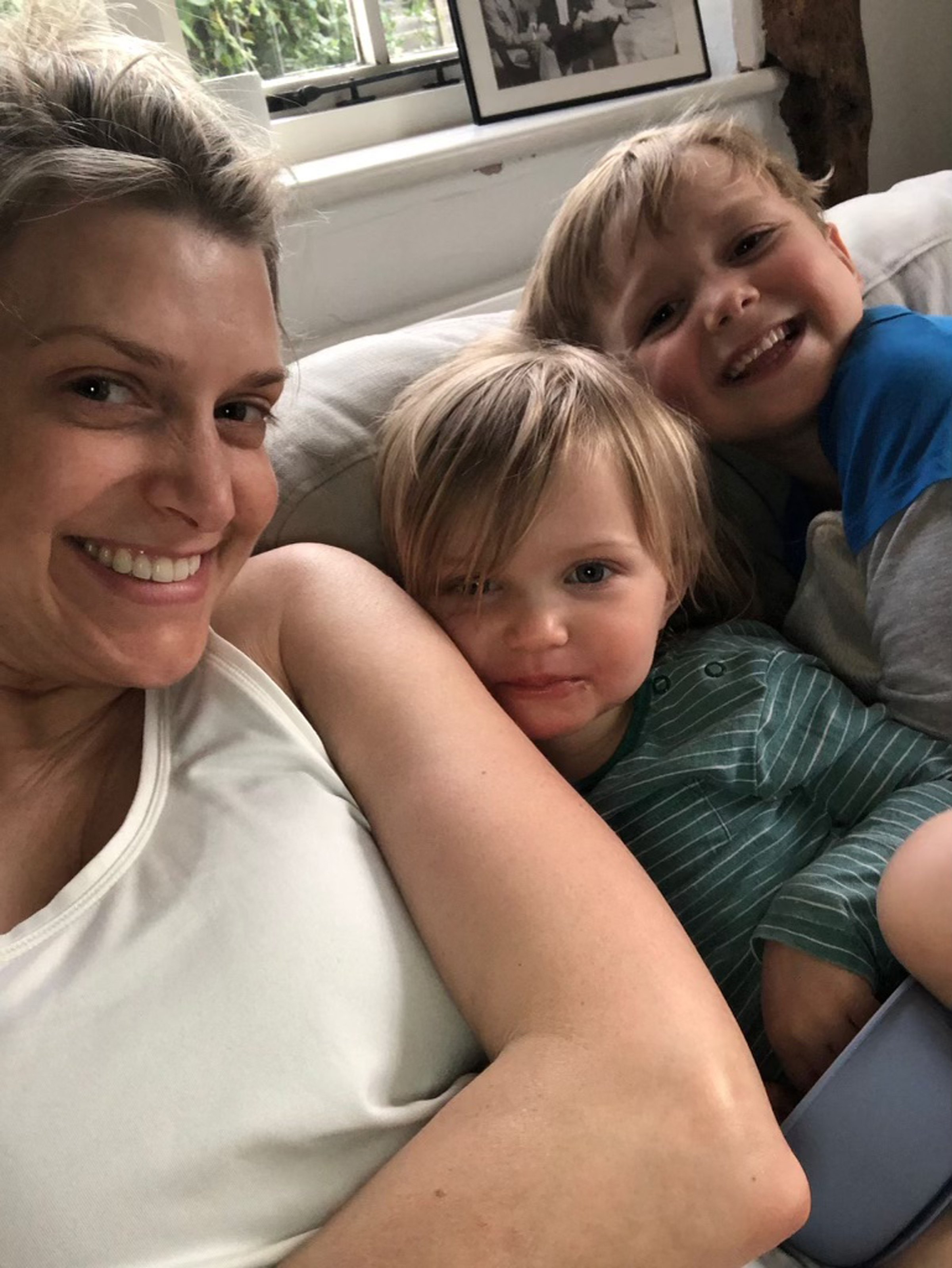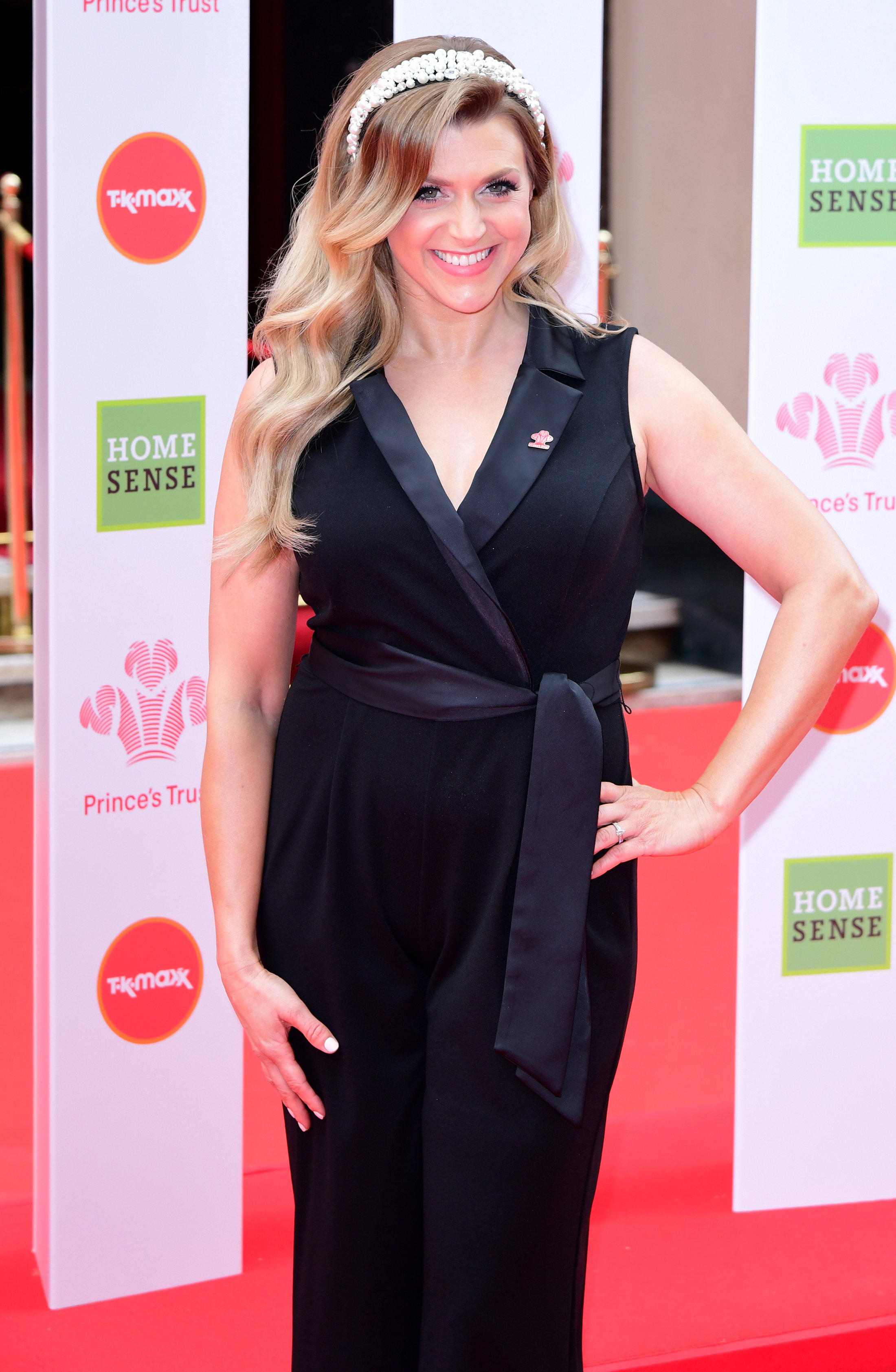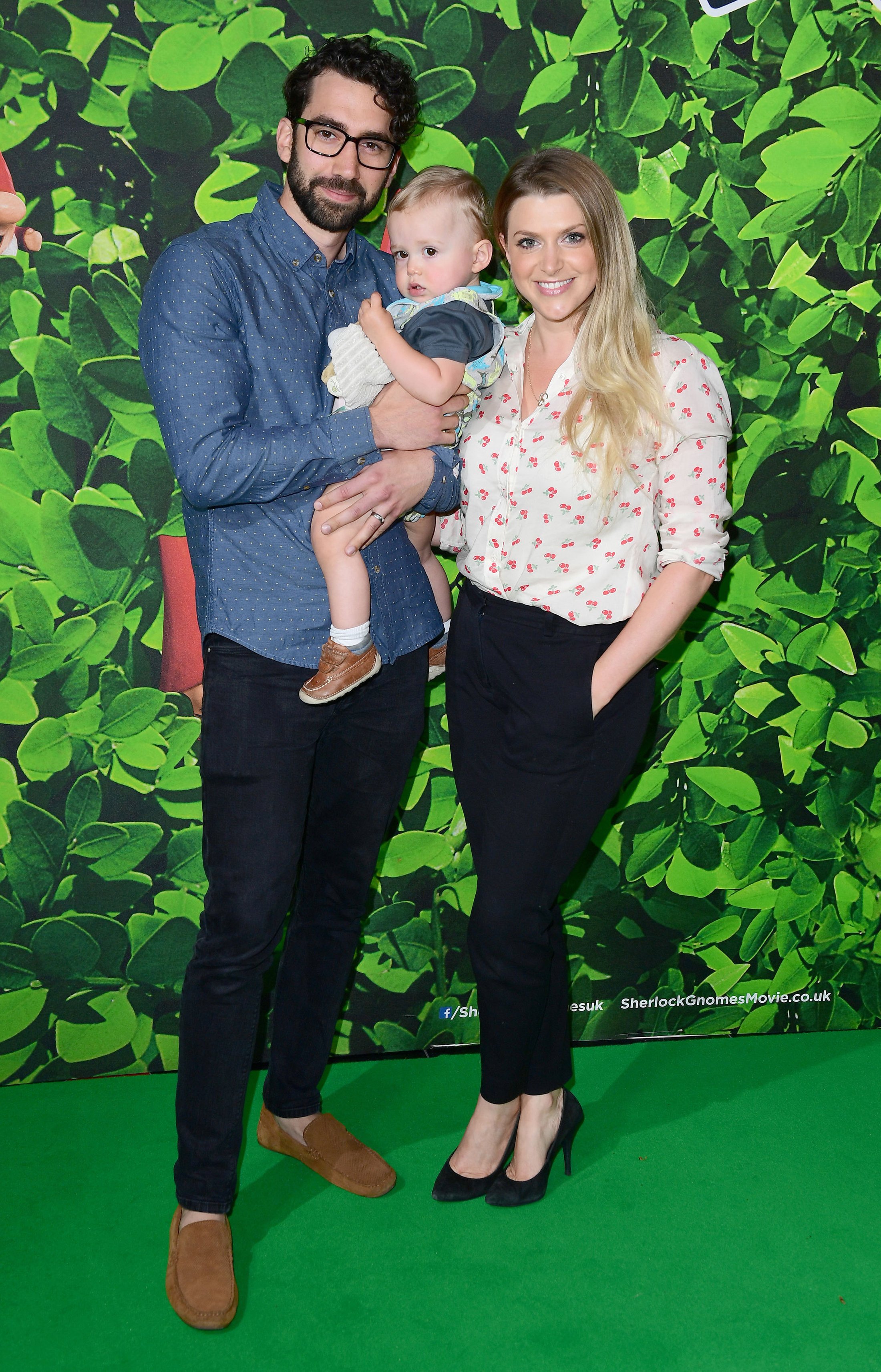Chill Lady
The TV presenter and mum-of-two talks about how she maintains her energy and how lifestyle is key for managing her anxiety.
When it comes to a healthy lifestyle, Anna Williamson has an impressive checklist.
Healthy eating – tick. Reduced alcohol, sugar and caffeine – tick. Regular gym sessions and yoga – tick. Mindfulness and relaxation – tick.
But there’s a very important reason behind all this – Williamson was diagnosed with generalised anxiety disorder 16 years ago and went on to have a breakdown. And when pregnant with her son Enzo, now five, she suffered severe perinatal and later postnatal anxiety.
“I know the best way to manage my own mental and physical health is with a 360-degree holistic approach, putting good stuff in my body,” explains Williams, 40, who also has a two-year-old daughter, Eleanora, with husband Alex Di Pasquale.
“I try and eat healthily. Yes, I love crisps and cheese, but equally I know I need to fill my body with the good stuff – our physical and mental health works as one big unit, not one without the other. I’m really mindful of what I put in, I don’t overly-caffeinate myself, I watch my alcohol intake and my sugary substances as well, which can spike my mood and crash it as well.”
Time Out
Williamson – who recently presented E4’s Celebs Go Dating and published a new book, Where Is The Love? The Honest Guide To Dating And Relationships – says she trains two or three times a week in the gym, and does yoga with Alex, who’s also a PT.
“Physical exercise is hugely important,” she agrees. “I think as a busy working mum, you really do need to find the small things that work for you, because the big things are a lot harder to actually adopt.”
And she’s a big fan of carving out time for herself – which is why she’s supporting the Pukka Herbs #Take2 campaign, to promote the importance of pressing pause to relax and enjoy a bit of calm.
“It’s about taking two minutes for yourself,” she explains. “It’s really important sometimes to remember that the simplest things can be the most effective. Particularly when we’ve come through the pandemic, we’re working a lot harder and getting back into everyday life at a rate of knots.
“I think some of those better practices we perhaps adopted during lockdown, like a slower pace of life and taking moments for ourselves like having a daily walk, are important to keep on with.”
But, with such a busy career and two young children, how does she find time?
“There’s no getting away from it – there are times that I wish I could relax, and I mean that with the biggest love in the world for my beautiful children. Being a mum, it’s really, really difficult. It’s the most rewarding job I’ve ever had, but equally it’s a really big juggling act – I don’t think I’ve ever met a parent that’s quite got the juggle right,” Williamson reflects.
“I actually really enjoy being a working mum, and I think it makes me a better parent. What comes with that is really managing and being disciplined with your work-life balance.
“I made a promise to myself and my family when I got married and had children – straight away, I felt like I wasn’t doing anything properly and not serving anybody properly, not least myself – so I made a plan that as long as the children came first in everything I did and were the priority, everything else filters down. And for me, generally that works.
“But self-care is also really important to me,” she adds. “You have to actively make time for yourself and give yourself a break.”
Self-Care
Williamson tries to practice mindfulness, which she describes as one of the cheapest, most effective forms of meditation.
“Anyone can do mindfulness, it’s simply the act of tuning in to the moment,” she explains. “It’s self-care and self-awareness, and a way of connecting ourselves back into our body and our thoughts, behaviours and feelings. The essential part of it is to ground us, so if we’re feeling stressed or anxious or have low self-esteem or are just feeling a bit nervous, mindfulness is a really good way of just putting a bit of a pause on life and resetting yourself.
“You can do it by just sitting in your front room and just breathing in slowly and noticing everything around you, noticing what you can hear, touch, taste, smell and see. It can be a very calming state of mind.”
Having a bit of time away from your children can be good for everyone, Williamson believes – she says she has a really good childcare network. Plus Eleanora goes to nursery two days a week and Enzo is at school.
“There are times when it’s important to get away, and it’s important not to feel guilt about that. I don’t subscribe to ‘mum guilt’. I do believe it’s important to have time away from your children and for them to have time away from you – I think it’s healthy, and good to miss your kids and for them to miss you.”
The children, she says proudly, adore each other, and would love another brother or sister. “Both of them have started asking us for a baby brother or sister, and I’ve said, ‘I don’t know about that’,” admits Williamson. “There’s no more children planned, but I’m 40-and-a-half and I definitely feel that biological tick-tock.
“In my heart, I’d love a third, but my head’s telling me it’s a lot of hard work, so I really don’t know. I’m so split – if someone could give me a ready-made third child that slotted in, I think I’d go with it, but getting pregnant, staying pregnant, having the baby and the newborn phase is such a marathon, I don’t know if I’ve got it in me.”
Another huge consideration is the perinatal and postnatal anxiety she suffered with her first pregnancy. She had a planned caesarean when Eleanora was born, and explains: “My first few months of being a mum weren’t happy ones, they were full of anxiety and fear and it was a terrible time mentally for me, so when I got pregnant again, I wanted to have a planned caesarean to give me more control over the birth.
“It was the most beautifully underwhelming birth ever, and I mean that in a great way, because I didn’t want the fuss I’d had before – I wanted it simple and easy, and that’s what I had.”
She says she “hasn’t suffered a blip” with her mental health since. “It’s a great testament to really doing your research around your birth choices and what works for you,” she says.
“I’ve lived with an anxiety disorder for 16 years and it’s part of who I am. I don’t believe in cure, I believe in well-managing. I practice a lot of self-care, and if I ever feel any triggers that might affect my anxiety, I very quickly jump on them and make sure I don’t spiral out of control again.
“A lot of people don’t recognise the importance of pausing, but often it’s not until we pause that we think, ‘How knackered was I? I’ve been feeling overwhelmed.’ I don’t think people realise the importance of being in power and in control of themselves.”
And this means saying no sometimes.
“Saying no is one of the most helpful things we can do for ourselves. Say no to that extra piece of work, say no to that umpteenth thing we’ve been asked to do that we really can’t do. It’s important that we put ourselves first – maybe it’s selfish, but if we break, everyone else around us is going to feel that too,” says Williamson. “You can’t look after anyone else until you’re the best of yourself.”








